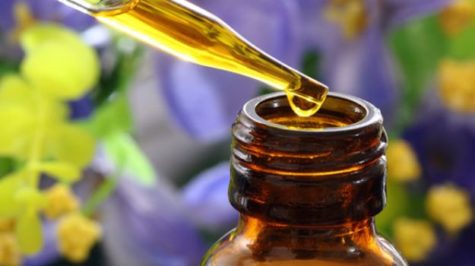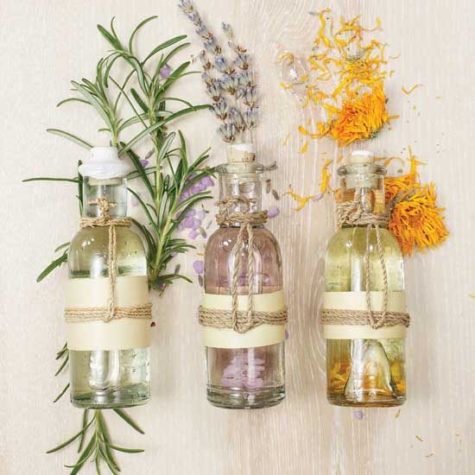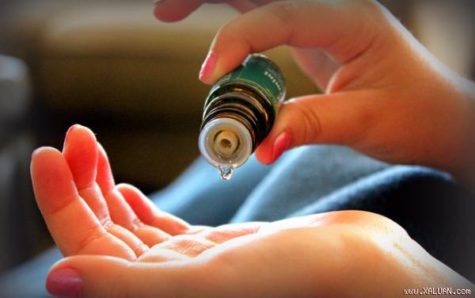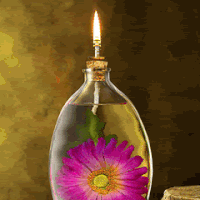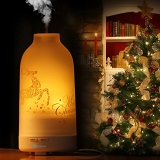Monthly Archives: March 2018
Essential Oil Safety Precautions
What follows is a list of the indispensable precautions for the safe use of essential oils. If you experience a problem in spite of everything, the first two guidelines are intended to counteract emergencies arising out of unintended contact with sensitive skin areas and mucous membranes.
- Never try to dilute essential oils with water.
As their name implies, essential oils do not mix with water. If they did, they wouldn’t float to the surface in a steam distiller, where they can be collected easily by separation flow. So it is important to remember if essential oils should ever irritate sensitive skin, they cannot be diluted with water. Water will cause the oils to burn even more. A comparison can be made to an oil fire: Water will tend to spread such a fire rather than extinguish it. Essential oils must be diluted with some type of vegetable oil.
- Never let essential oils come in contact with mucous membranes or sensitive skin.
By the very nature of extraction, essential oils are highly concentrated substances. Essential oils, because of their highly concentrated state, must never come into contact with mucous membranes or sensitive areas of the skin. If essential oil is accidentally splashed into the eye, the irritation is very intense The oil must be diluted immediately. Almond oil is mildest for the eyes, but any pure vegetable oil will help. Put it on a cotton ball and delicately dab at the eye.
When essential oils come in contact with other areas of sensitive skin (armpits, genital areas, face, etc), vegetable oil can be applied the same way to dilute the essential oil, thus reducing the irritation
If essential oil is swallowed, one or two spoonfuls of virgin vegetable oil must be taken immediately to soothe the irritated mucous membranes and dilute the essential oil reaching the stomach. This will also slow down the speed of passage through the gastric mucous membranes and penetration into the blood.
- Never add undiluted essential oils directly to bathwater.
This precaution must be taken, again, because the oils will not mix with the water but will float on top of it. When essential oils are used this way in a bath, the floating oil will stick to the skin in its concentrated form, particularly to the sensitive genital areas. This can cause a very unpleasant, even serious irritation, because hot bath water actually increases the irritation.
Instead, dissolve the oils first in powdered milk, egg yolk, or even coarse sea salt. Never try to use more than 10 to 20 drops of essential for one bath. For further safety, add the essential oil / powder mixture slowly over time while you are in the bath, rather than all at once.
- Generally, people with allergies must be very cautious with essential oils.
My first advice to those with allergies is to choose the very highest quality oils you can find. Residues from chemical agriculture are in fact the most likely source of skin reactions. As much as possible certified 100% organic essential oils should be used. Do The Patch Test before using any new essential oil.
- Some essential oils are light-sensitizing, so exposure to sun must be avoided after application.
This is particularly true of citrus essences, extracted by cold-pressing. The most common case is that of the essence of Bergamot, but caution must be used with most citrus oils. Beyond the citrus varieties, I should also mention the essential oils of Angelica and African Marigold. Ignoring this rule when using these essential oils could result in brown skin patches which could become permanent. There may also be an increased risk of skin cancer.
- Some essential oils have strong caustic characteristics, and should be used very cautiously, generally in a diluted form.
This applies to the essential oils rich in phenols (thymol, carvacrol, eugenol). Examples include the phenol Thymes, Oregano, Savory, Clove, and Cinnamon Leaf. The essential oil of Cinnamon Bark is also very irritating. Also the oil of Lemongrass, concentrated in citrals, can be highly irritating.
- Essential oils rich in menthol should not be used close to the throat or neck on children under 30 months of age.
This is the rule taught in medical and pharmacological courses concerning menthol. In natural aromatherapy, we do not use menthol in its pure state, but use instead the essential oil of Peppermint, which is very different. Nevertheless, as a supplementary precaution, I prefer to include this rule as it is learned in standard medicine.
- Care must be taken to tightly close essential oil bottles after use and to always keep them out of reach of children.
This rule is self-evident, but must be restated because it is broken too often. It applies to all chemical products and medications.
- Taking essential oils orally requires oils of impeccable quality and the direction of a qualified health professional.
This basic precaution does not preclude taking them in diluted form in an appropriate medium. Even so, problems that arise from taking essential oils internally are generally due to the fact that they are taken in a concentrated state which leads to rapid absorption in the stomach and a very quick passage into the bloodstream. Taking one or two drops of a mild essential oil of high quality, diluted in honey, does not entail any particular risk. It just requires good common sense.
- Always keep some vegetable oil readily available when using essential oils.
Any essential oil kit must contain a vial of good quality carrier oil. This carrier oil is important not only for diluting the essentials, but also for safety in case an undiluted oil causes sensitivity, or is accidentally applied to a sensitive area.
Source: Natural Home Health Care Using Essential Oils
Therapeutic Grade Essential Oils
Here’s a quick test to ensure that your Essential Oils are Therapeutic Grade:
- Are the fragrances subtle, rich, organic, and delicate? Do they “feel” natural?
- Do the fragrances of your oils vary from batch to batch as an indication that they are pure and painstakingly distilled in small batches rather than industrially processed on a large scale?
- Does your supplier send each batch of essential oils it receives through up to five different analyses before it is released?
- Are these tests performed by independent labs?
- Does your supplier grow and distill its own organically grown herbs?
- Are the distillation facilities part of the farm where the herbs are grown so they are freshly distilled, maintaining their potency?
- Does your supplier use low pressure and low temperature to distill essential oils and preserve all of their fragile chemical constituents?
- Are the distillation cookers fabricated from costly stainless steel alloys to reduce the likelihood of the oils chemically reacting with metal?
- Does your supplier have representatives traveling worldwide to personally inspect the fields and distilleries where the herbs are grown and distilled?
- Do they scrutinize the facilities to check that no synthetic chemicals are being used in any of these processes?
If your answer to all of these questions is yes, you can feel confident that your oils are therapeutic grade, the purest available.
Source: Introduction to Young Living Essential Oils
The Patch Test
Some oils have been known to cause irritation, allergic reactions, or sensitivities on some people. However, all substances have been implicated to some degree in unpleasant reactions on someone… so it would be wise to try the patch test before using a new essential oil or any other cosmetic substance externally.
If you have sensitive skin or a history of allergies, then by all means use a patch test to gauge your relative sensitivity to essential oils.
Here’s how to do it:
Wash an area on your forearm about the size of a quarter and dry it carefully. Apply a drop of the essential oil. If you are very sensitive in general you may wish to dilute the oil equally with a bland carrier oil such as Olive oil and apply this dilution.
Then add a loose Band-Aid and wait 24 hours. If there is no reaction – terrific – go ahead and use the oil in your formulas. Do, however, keep all essential oils away from the eyes and from moist mucous areas in general.
From: The Aromatherapy Handbook
The Origins of Aromatherapy

The origin and elements of Aromatherapy can be traced back to nearly 3000 years before Christ, when the earlier Egyptians used the elements of Aromatherapy in their daily lives. Documented records show that Egyptians burned incense made from aromatic woods and additional herbs to honor their gods.
Also imperial harems and guest houses used many aromatic oils very profusely to satisfy numerous important guests. Aromatherapy has its roots in the most ancient healing and therapeutic practices. Healing plants are used to cure many ailments and used in many sacred rituals to evoke separate states of consciousness.
Elaborate religious ceremonies were performed in Egyptian temples, where the dead King was mummified and surrounded with exotic necessary oils. Egyptians believed very firmly that essential oils have an unusual preserving property when added with other spices.
Embalming was one of the principal uses of aromatherapy, preserving the fabric of the bodies for thousands of years. The oils and resins used were so powerful, that in the 17th century mummies were sold in Europe and doctors distilled them for use in their medicines.
Aromatherapy truly emerged from the smoky temples of Egypt 6,000 years ago. Egypt was the motherland of medicine, pharmaceutics, cosmetics and perfumery. Trading was flourishing and traders arrived for trade from all over the world by land and sea to deliver flowers, herbs and plants. Priestesses and priests strictly supervised the delicate preparations in the temples and palaces, reading formulas and chanting incantations and hymns, as substances were measured and combined with ultimate precision.
Purification processes went on for months until the right, perfect subtle blend was achieved.
The Babylonians went so far as to perfume the mortar with which they built their temples – an art they handed down to the Arabs who built their mosques in the same aromatic way. In India the early temples were built entirely of sandalwood, ensuring an aromatic atmosphere at all times.
The use of aromatherapy spread from Egypt to Israel, China, India and the Mediterranean. Every culture, from the most backward to the most up to date, developed their own set of practices. Greek physicians and military surgeons were employed by the Romans every where in the empire. After the fall of the Roman Empire, the science spread to the Arab countries, where medicine men devoted them to the bygone art of alchemy, perfecting the art of distillation and extraction.
Hippocrates, the farther of medicine, said that “the way to health is to have an aromatic bath and scented massage every day.” As far back as the fourth century BC, he recognized that burning certain aromatic substances offered protection against contagious diseases.
For many centuries essential oils were the only remedies for widespread diseases and conditions. During the dreaded Black Plague, very few became ill, who in fact were associated with perfumeries and glove industries where these oils were in profuse use. During the 19th century, with the development of modern science, all forms of herbal medicine disappeared until the 1920s, when French chemist Gatefosse revived the art, giving it the name Aromatherapy.
India was one of the few countries where the custom was never lost, Avurveda being the most ancient medical practice in the world today. Aromatherapy is now used in hospitals, offices, clinics and homes all over the world. Aromatherapy acts as a span between the new and old, most of the industries use these oils for various blends and concoctions, which contribute cure and relief for a number of complications.
Sources:
- The Complete Book of Essential Oils and Aromatherapy
- Incense Warehouse
